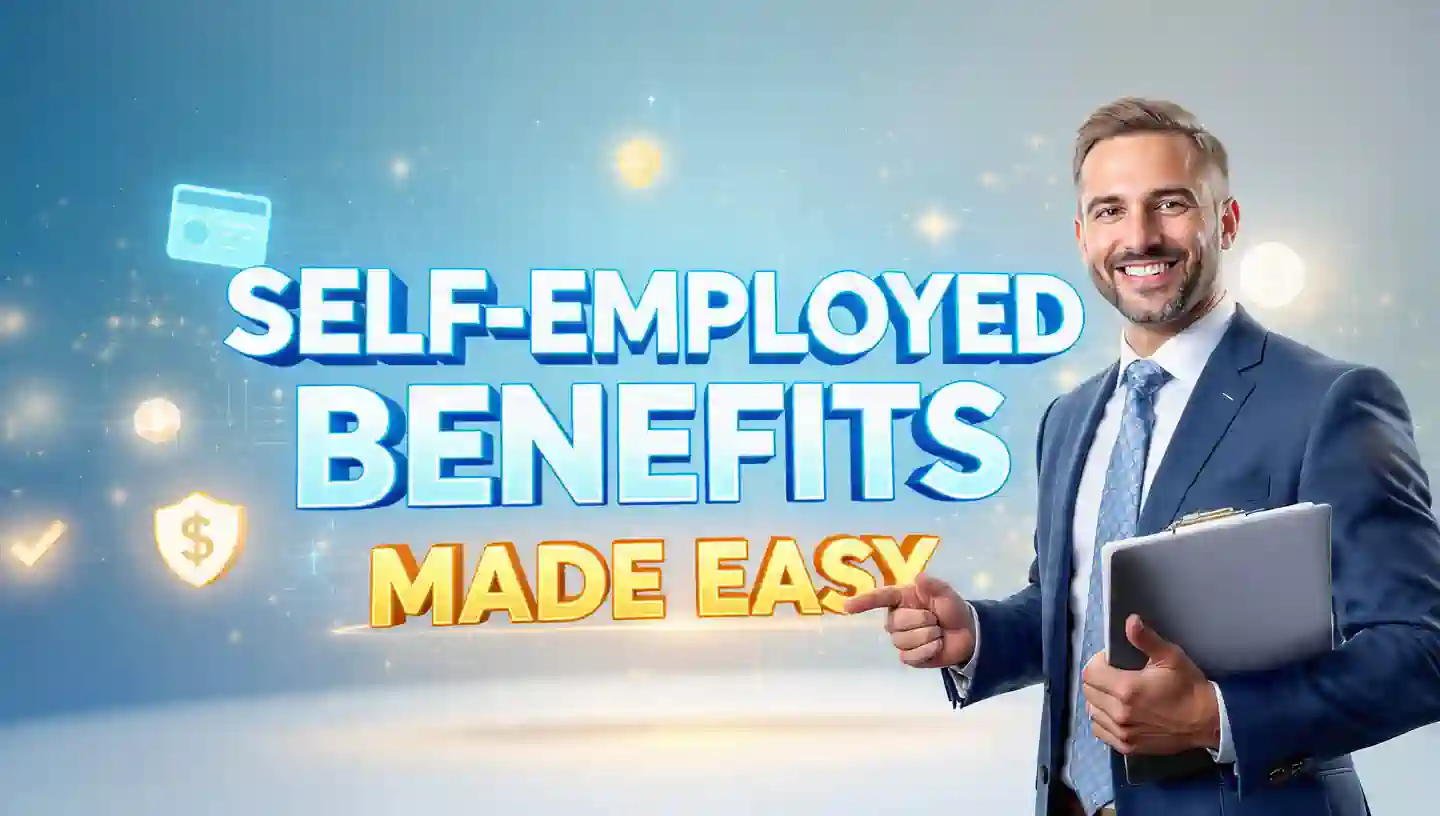How to put together a benefits package when you’re self-employed
(This page may contain affiliate links and we may earn fees from qualifying purchases at no additional cost to you. Check out our website Disclosure For more information.)
Chat with Human Resources
The first thing you should do is chat with the HR department of your soon-to-be (or already) former employer. From there a representative can see what will happen to your benefits after you leave the company.

- When will your medical insurance coverage end?
- How much does he do? Cobra Coverage cost?
- Will you receive your unused paid leave in a lump sum in your last paycheck?
- Is an employer-sponsored life insurance policy portable (meaning you can keep the policy and pay for it yourself)?
- Will you get your full pension?
- What is the contact information for the retirement savings plan provider?
Prioritize your perks
Once you know what your previous organization will do for you, list all the benefits you want to replace. Then rank them in order of importance. This way, you’ll have a plan to keep you organized. For example, if your spouse can add you to her health insurance, you can shift your focus to… Replenish funds in your 401k To a new retirement savings account or obtain a new account life insurance policy. Pro Tip: Don’t forget to double-check your list. You may have included major benefits, such as health insurance, life insurance, and retirement savings. But have you taken into account the perks like Long term care, petor Disability insurance?Determine your budget
As an employee, your employer may have covered a high percentage of your insurance premiums, matched a portion of your retirement savings plan contributions, and paid for other benefits. But now, this responsibility falls solely on your shoulders. So, before you start putting together a self-employed benefits package, you should determine how much you can spend. To do this, review your current budget and your new income level. Do you have any room to maneuver? Will you need to cut other spending to free up money to pay for your benefits? Make sure you set a monthly limit that you can comfortably afford. This way, you won’t find yourself scrambling to cover your insurance premiums during a lean period in your business.Shop for insurance
Now that you have a budget ready, you can shop for insurance. Many freelancers, contractors and sole proprietors visit Healthcare market. From there, you can review your options and enroll in the right coverage for you and your family (if applicable). Depending on your income, you may qualify for plan premium support, which reduces your monthly cost. Even if you don’t qualify for a subsidy, a comparable Marketplace plan will likely be cheaper than COBRA coverage. Note: Since your loss of employer coverage is a qualifying event, you don’t need to wait until then Registration is open To get a new policy. If you don’t find a policy you like or can afford on the marketplace’s website, you may want to look at a Ministry of Health Care Sharing. It’s not health insurance. Instead, it is a program in which group members help pay for each other’s medical expenses. You must be religious to qualify, and there is no guarantee that a particular claim will be covered. However, your monthly financial responsibility will likely be much lower than if you chose a traditional health insurance plan. Do you need dental and vision coverage? Your health insurance policy may offer some benefits. If not, you can compare quotes from major moving companies. Pro Tip: If you need to replace other insurance policies, such as life or disability insurance, you can get quotes from multiple insurance companies on websites like Politics genius.Compare your retirement plan options
You may be wondering: what is it? Best retirement plan For self-employed people? Although we can’t make this decision for you, we can give you some common options:- Only 401 kilos: Great for solopreneurs and freelancers and works similarly to your workplace 401k. You can contribute as an employee and an employer.
- Traditional or Roth IRA: IRA stands for “Individual Retirement Arrangement.” Traditional IRAs give you a tax benefit upfront, while Roth IRAs give you a tax advantage when you withdraw the money.
- September-IraSEP stands for Simplified Employee Pension. This investment vehicle is an IRA designed specifically for the self-employed.
Remember PTO
When you’re self-employed, you won’t earn if you don’t work. But you still need to take vacation regularly. You can cover your sick days and vacation by setting aside a portion of your income each month. This way, you can utilize this money to cover your expenses when you are out of the office.Try to cut costs
At this point, you may have realized how much you have The employee benefits package was worthy. Fortunately, there are some ways you can reduce the expenses you now have to shoulder on your own. Discover these tips on how to save money on: Bonus reading: Do you want to get lean and toned on a budget? verify The best free and inexpensive health fitness apps.Are you self-insured or uninsured?
If you have a good cash reserve, you may decide to do so Self-insurance. This means that you are not purchasing insurance but instead covering all of your expenses – including what the insurance company may do. Essentially, you’re betting that your out-of-pocket cost will be lower to cover those expenses than paying your insurance plan’s premiums. But it’s a gamble, so you have to be comfortable with that risk. Pro Tip: You can save money on treatment if you get it Sick or injured while uninsured.Take this discount
You can often deduct health insurance premiums and retirement savings plan contributions from your taxes. Taking advantage of these tax breaks can improve your startup’s bottom line. But remember, it’s wise to consult a qualified accountant or financial professional to help you legally maximize your deductions (and profits).Final thoughts
Switching from traditional work to self-employment does not eliminate your need for a healthy and secure future. Fortunately, you can put together a benefits package that gives you the insurance coverage and financial tools you need to thrive for years to come. Tell us: Have you created a set of freelance perks? If so, what did you include and why? the next: Freelance writer reflects on five years in









